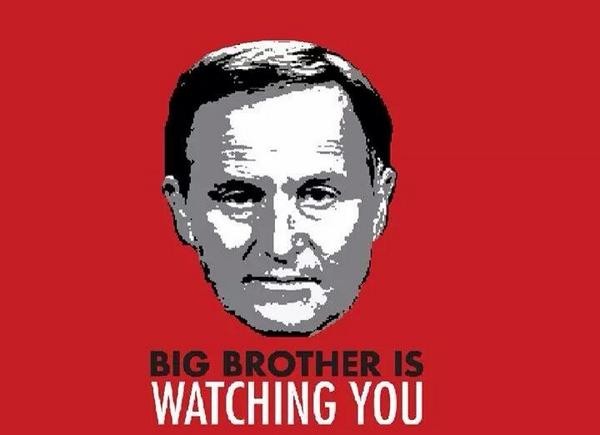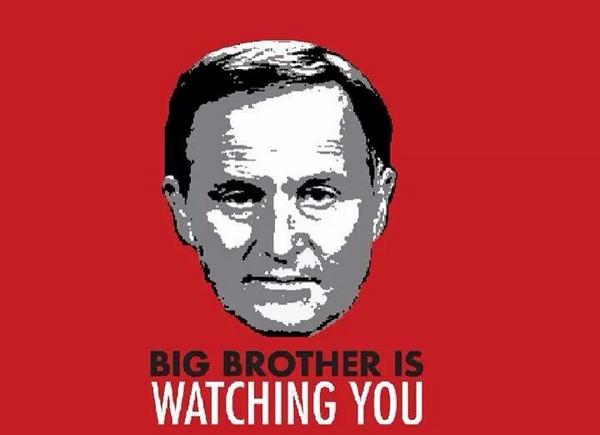
The Government is considering the recommendations of a former Deputy Prime Minister and lawyer as it embarks on designing a new wave of controversial spy-law reform. And again, it looks certain to drive a wedge into contemporary New Zealand.
On one side are those who support and trust the government to get the balance right between security intelligence and civil liberties, and on the other… those who don’t. Previous polls on such matters suggest the split is about 50/50.
The Report was delivered to the Government on February 29 and had been kept under wraps until yesterday (Wednesday March 9). It’s titled: Intelligence and Security in a Free Society and was written by former Deputy Prime Minister and Finance Minister in the Clark Labour Government, Sir Michael Cullen, and, Dame Patsy Reddy a lawyer with corporate experience.
Sir Michael and Dame Patsy write: “The need to maintain both security and the rights and liberties of New Zealanders has been at the forefront of our minds. Given the intrusive nature of the Agencies’ activities, New Zealanders are understandably concerned about whether those activities are justifiable. This concern is not helped by the fact that the Agencies’ activities have been kept largely in the shadows.”
Fair comment.
But I would add to that the fact the Government Communications Security Bureau (GCSB) was found only four years ago to have been operating illegally under the current Prime Minister’s governance. That is, until he changed the law in 2013 to accommodate the spy agency’s illegal operations. And after much public outrage on the matter, the Prime Minister also read into the new legislation a retrospective element, making past illegalities legal. In some suburbs of Auckland, slick manoeuvres such as this are called a hustle.
However, in this report, there is some progressive thinking in evidence. For example Sir Michael and Dame Pasty recommend New Zealand’s spy laws be redrafted and brought under one single intelligence and security act, so as to make it clear what the spy agencies “can and cannot do”.
In a comprehensive report such as this, there is much detail, and within it much that when brought out for discussion will attract considerable and enduring controversy.
Let’s look at the recommendations regarding proposed authorisation procedures.
This set of recommendations frame how authorisation is applied for, and given, when spy agencies seek to surveil New Zealand citizens and permanent residents. The recommendations include changes to:
* how targeted surveillance is authorised against New Zealanders and permanent residents be designated as Tier 1 authorisation and require sign off from the Attorney General and a judicial commissioner. This changes from the Prime Minister (or minister responsible for the intelligence agency) and commissioner.
* how covert spying and intelligence gathering activities be designated as Tier 2 authorisation and would require the sign off of just the Attorney General
* how open source intelligence gathering is authorised, defining it based on how it is collected (which includes the surveillance of organisations, people, and individuals while in a public place) – such activities would be designated as Tier 3 authorisation and would only require a broad policy statement to be issued by the Attorney General.
If the spy operations intend to target a foreign dignitary, or embark on an operation likely to have implications for New Zealand’s foreign policy or international relations, then the Attorney General ‘should be required’ to refer authorisation applications to the Minister of Foreign Affairs for comment.
Is this an erosion of the status quo, of the current requirement that security intelligence operations involving the surveillance of New Zealand citizens and permanent residents require a warrant signed off by the commissioner and Prime Minister or minister responsible? Or is it improving on the current regime by tagging the responsibility to the Attorney General, a minister in the Executive Government’s cabinet whose justifications can be more readily challenged, even reprimanded, than can a prime minister?
The report fails however to address the fact that when our security intelligence agencies target an individual placing him or her under surveillance, breach a network, a computer, smartphone or communications device, they initiate an operative methodology referred to as up to ‘two hops’ – which means hundreds or even thousands of others fall into the scope of surveillance simply because they may have been in direct communication with the individual under surveillance or (in the case of two hops) been in communication with an individual who may have been in communication with the individual upon whom an authorisation surveillance warrant has been granted and actioned.
It is believed that this is how Keith Locke’s SIS file included references to surveillance while he was a member of Parliament representing the Green Party. Helen Clark, who was the prime minister at the time, suggested no warrant had been authorised permitting the SIS to place Mr Locke under surveillance. However, it is believed, that a person of Sri Lankan Tamil origin, whom Mr Locke was in communication with, was the subject of an authorised and warranted surveillance operation. If correct, then Mr Locke’s privacy and rightful right to political liberty was breached without authorisation.
The report fails to address this nor make a recommendation on how such a practice should be addressed.
Scope of the Spy Agencies:
There is considerable attention given to how the security agencies should come under the State Services Act and be under one umbrella; that accessible information databases be defined and information and intelligence sharing and cooperation among public agencies (including the Police and Inland Revenue) be permitted.
It suggests a legislative catch-up be initiated to detail in law how the Security Intelligence Service (SIS) and the Government Communications Security Bureau (GCSB) work with the Police on operations, share skill-sets, and prevent duplication of the same within other agencies.
The National Assessments Bureau (NAB) is also given some attention, suggesting it be brought into the fold as a significant specialist analysis body that works with executive government and politicians to understand and accurately assess the intelligence product. The NAB has been doing this in part since it was brought in from the cold, its title changed from the under-utilised External Assessments Bureau and brought within the respectable influence of the Department of Prime Minister and Cabinet.
The report did not observe nor comment on how professional, efficient, or otherwise the spy agencies are. However, moves to locate elements of the intelligence community within the scope of the Department of Prime Minister and Cabinet suggest deep-seated concerns by those of the Public Service’s highest office. And the fact that senior members of the DPMC have in recent years been seconded to the SIS and GCSB also suggest a tipping point was breached once realisation was publicly noted of ill-defined and illegal surveillance activity.
The report also fails to address the question of in whose interests (foreign or otherwise) the GCSB and SIS serve. The Edward Snowden revelations, and the FBI’s involvement in the raids on Kim Dot Com and his associates (of which the GCSB was found to have been illegally involved) underscore why the public rightfully has concerns that external foreign powers use the GCSB as an instrument that serves their own national security interests.
Human Rights:
The report does mention how human rights should be a consideration for investigations conducted by the Inspector General of Intelligence and Security, which could offer a counter-balance to the previously heavy-weighted national security intelligence considerations applied to trade implications.
This recommendation may provide a reference, or at least a point of discussion, should the SIS embark on another disastrous, costly, wobbly, and legally flawed security risk certificate exercise – as was initiated when former Algerian politician and academic Ahmed Zaoui was imprisoned unjustly after seeking asylum and refugee status in New Zealand. In that case, the SIS cited likely negative trade implications with Algeria as justification for imprisonment without a trial while the Government considered Zaoui’s fate and possible deportation. Of course in the end, after years of legal battles and millions of dollars spent, the SIS retracted its security risk determination and deemed Zaoui not to be a risk to New Zealand’s national security at all.
Oversight:
With the forever intensification of state security intelligence powers, there has been much discussion about the need for more robust oversight. It is interesting, if not disappointing, that Sir Michael and Dame Patsy only recommend a slight tweaking of the status quo.
For example, it is recommended the Inspector General of Intelligence and Security’s investigative powers be expanded in scope to include investigations into ‘sensitive’ operations. And, the Parliamentary Intelligence and Security Committee be increased to a minimum of five and a maximum of seven politicians. There is nothing in the report’s recommendations that addresses Sir Michael and Dame Patsy’s observation that politicians on the intelligence committee are at times unable to fathom the detail or underlying consequences of information communicated during intelligence briefings – presumably due to the use of jargon, intel-speak, and vague references in the communications.
One would have expected, at the very least, this report would have recommended a robust oversight committee be established with a mix of sworn in and appointed experts including political, judicial, constitutional, and formerly operational members.
In Summary:
There is much detail in the report, and overall Sir Michael and Dame Patsy have provided a robust analysis of today’s security intelligence environment, its demands, complexities, and referenced realities of security threats (whether they be cyber-security, human, infrastructure, or reputational in nature).
The Cullen-Reddy report does not make recommendations nor observations as to whether New Zealand has the balance right between the state’s search and surveillance powers and those of the citizenry’s right to expressions of freedom and liberty without undue corruption of those ideals.
And as far as public discussion, discourse and debate is concerned, it would have been helpful had the report included an observation of where New Zealand currently sits on the search and surveil Vs civil liberties axis when compared to the other Five Eyes intelligence partner states – I would suggest the Telecommunications (Interception Capability and Security) Act 2013 and other states’ counterpart legislation could be used as a benchmark.
You can download the full Cullen/Reddy report –Intelligence and Security in a Free Society (pdf).
Selwyn Manning is the Editor of EveningReport. This editorial first appeared there.






This is what happens when you leave bean counters in charge of counterterrorism.
You get light air mobile units well suited for the lowest level threats, and not fit for the original entended purpose of protecting minorities from the majority.
All this new technology this, and capability that, pfft, pffffffffffffft, there not retrospective, there only useful after the fact. And this is my point, when you leave bean counters in charge. They get creative in solutions, and capabilities creep in that are better left to the industries that created them in the first place.
All the GCSB and SIS is saying is that they are really shit at recruiting. I’ll explain.
When you spy on people, it’s good to have a labour force of different nationalities of spy’s to draw on. Case in point the Korean War, north vs south, where America had a ready made spy work force who could speak the same language as (sarcasm) North Koreans, and were willing participants. On the other side of the equation we can looked at the Vietnam war where Americas enemy the Vietcong could slip in and out of the populous because the are the same people.
My point is all our spy agencies are saying is that they are shit at recruiting and find it difficult to except applicants other than white males, and that bean counters must get creative with bigger badder bad ass technology to make up for the fact that we have a glut of white male Uni grads who don’t achieve a plumbers wage until they are 40
What disturbs me is the normalization of “national security” agencies like the SIS and GCSB engaging in routine surveillance of our own citizens. This is not ordinary police work, which is about keeping the peace and investigating allegations of criminal activity. Neither is it “national security” work, which is about investigating alleged threats to the safety and well-being of the people of this country. By blurring together policing and national security, National have created a sinister secret police apparatus that Bomber quite fairly compares to the East German Stazi, engaged in politically-motivated and especially “trade”-motivated surveillance of anyone who dissents against the government of the day.
Considered in the light of the history of the NZ Police, the SIS, and the GCSB, this mission creep starts to look like a slow motion shipwreck of our democratic freedoms on the rocks of “national security” fearmongering.
Bottom line: The People of New Zealand are the enemy.
http://www.collective-evolution.com/2015/10/27/professors-politicians-gather-to-warn-us-about-the-new-world-order-nwo/
Brilliant Helena really tells it like it is, The N W O is real not a conspiricy as the powers that be like to portray.
Our govt follows everything USA does,including spying on its people, using sports people to encourage people to vote against their interests.
To justify the new spy laws watch out for false flags to scare us into accepting the snooping.
Also some Nat troll voting down your comment as expected.
@ELLE The sad reality for that Nat troll is if he/she is not in the hierarchy of “The Club” or of the Illuminati bloodline then he/she is expendable just like the rest of us.
Agreed Helena, but like blind mice they dont know it yet.
Perhaps Key is anxious to locate possible spies left behind from Krill’s visit to Antarctica (which our media forgot to mention):
http://beforeitsnews.com/opinion-conservative/2016/02/russian-patriarch-kyrill-visits-antarctica-to-bless-polar-explorers-3108176.html
It wasn’t so much methinks to “bless explorers” but possibly to secrete:
http://yournewswire.com/patriarch-kirill-performs-bizarre-ritual-in-antarctica-over-ark-of-gabriel/
PHARMAC: If you give us a bit more money we could save dozens of lives?
BILL: I wish I could, but the cupboard is bare. The asset sales windfall is gone, and we aren’t over the GFC, and I haven’t even started building those 10 bridges in Northland – but I’m not going to dip into the earmarked election year tax cuts, because tax cuts are my precious and I must protect my precious!
POLICE: Our funding has been frozen for years. We’re falling behind in our training. We no longer investigate willful damage, burglaries, or minor fraud, and we’re cutting frontline officers in the South Island, starting on the West Coast. If you give us a bit more money we could save dozens of lives?
BILL: I wish I could, but the cupboard is bare. I’m skint, after giving away millions to Saudi businessmen, failed flag referenda, and Warners – but I’m not going to dip into the earmarked election year tax cuts, because tax cuts are my precious and I must protect
my precious!
SIS/GCSB: If you expect us to improve our surveillance, under the proposed single surveillance law, then we’ll need an extra hundred, to upgrade all our snoopy stuff. If you give us a bit more money we could save dozens of lives?
BILL: What denomination do you guys prefer; millions, billions, or trillions? Here’s $100 million to go on with, that I found in my other pants. That should keep you in shoe-phones for a while!
SIS/GCSB: And don’t forget to throw in, the bundle of double dipping cash, which you hid in an old viagra bottle, behind the one way mirror, at the boudoir, where you do your spanking, that even your luscious latino, latex clad love interest Lola, doesn’t know about – the footage of the honorable member was very amusing.
Don’t bother asking how we obtained it, because we can’t possibly comment on our operational capability.We’ve even got dirt on the Pope!
BILL: ?
Comments are closed.